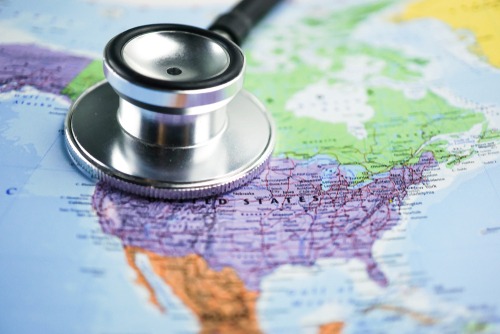
In an attempt to address U.S. global health security staffing and to provide a permanent designated official for coordinating interagency health response, 57 House members supported the reintroduction of the Global Health Security Act this week.
Led by U.S. Reps. Gerry Connolly (D-VA), president of the NATO Parliamentary Assembly, and Congressman Steve Chabot (R-OH), a member of the House Foreign Affairs Committee, and backed by 55 cosponsors, the bill’s supporters call it necessary to combat the ongoing COVID-19 pandemic. It would do so by addressing U.S. global security staffing and activities through law, rather than executive order, and create a permanent position tasked with coordinating interagency responses to global health security emergencies.
“More than 400,000 Americans and two million people across the world have died from the Coronavirus,” Connolly and Chabot said. “Disease knows no borders, and this pandemic must be a wakeup call for Congress that the federal government must have a coordinated strategy with empowered leaders to prepare for future pandemics. By recognizing the critical role of U.S. leadership in international health security, enshrining U.S. global health security policy in statute, and ensuring that there is a permanent designated official responsible for coordinating these efforts in a strategic way, our legislation makes sure the United States is never caught off guard by future public health crises.”
Earlier this week, one of President Joe Biden’s first acts was to recommit the United States to the World Health Organization (WHO). The signatories of this legislation noted that global health security is a bipartisan effort, its importance recognized by Republican and Democratic presidents alike.
Therefore, the Global Health Security Act would codify U.S. investments in preparation and response efforts for public health threats and reduce their spread across borders. It would also build U.S. commitments to the multilateral Global Health Security Agenda, which calls for building capacity to manage infectious disease threats and recognize health security as a worldwide priority.
In 2015, the Centers for Disease Control and Prevention labeled nearly 70 percent of countries unprepared to effectively detect, assess, report, and respond to potential health threats. More recently, in 2019, then-Director of National Intelligence Daniel Coats called the U.S. and the world vulnerable to largescale outbreaks of contagious diseases — an assessment that was proven prophetic just the following year.




